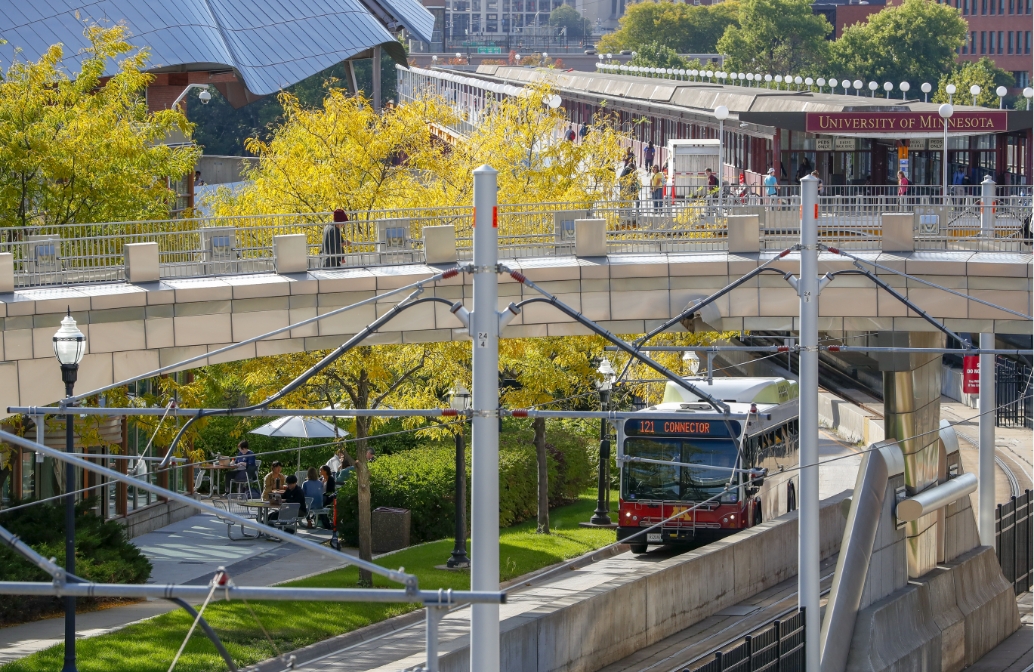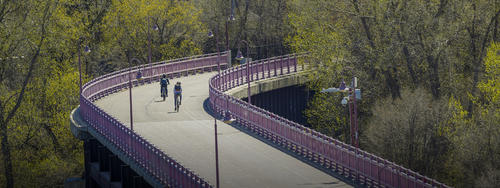
Commuting with less carbon
Transportation is the largest source of greenhouse gas emissions in Minnesota and a significant source for the University. The new U of M Twin Cities Climate Action Plan calls for the U of M to reduce emissions from commuting by 40 percent by 2033, and by 70 percent for the University's more than 500 fleet vehicles.
One of the best ways to get to, from, and around campus is by bus or bike.
The University has invested heavily in biking infrastructure on campus, and it hasn’t gone unnoticed: The U has been recognized as a Platinum Level Bike Friendly University and a Platinum Level Bike Friendly Business by the League of American Bicyclists numerous times, most recently in 2023.
Thousands of people bike to campus every day, and there are plenty of reasons why.
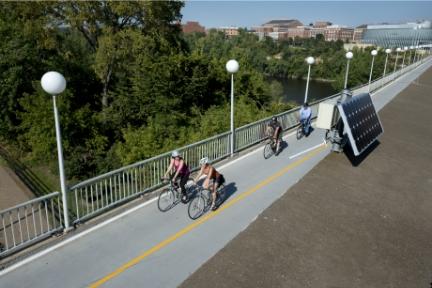
Get zapped!
The U of M Zap program rewards cyclists for biking, and thousands do so every day on and around campus. Students receive gift cards and employees earn health insurance premium reductions just for riding their bikes. Participants can also view a dashboard that tracks miles, pounds of CO2 offset, and gallons of gas saved.
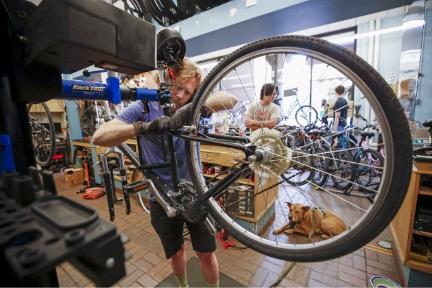
U of M Bike Center
The U of M Bike Center provides bike services to the U of M community and the public, including bike repair, classes, and sales. This is where you can join the ZAP Program; just stop in and have them install an identification tag on your bike.
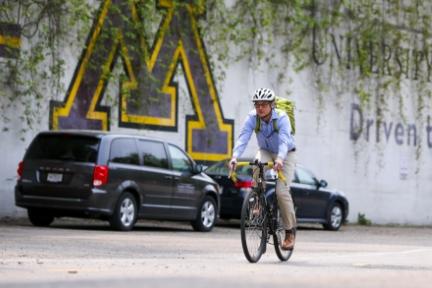
Helmets and Headlights
Cyclists can get discounts on bike helmets, lights and/or LED straps, and other accessories to help them ride safely.

Research snapshot: A record-setting discovery
A discovery by U of M researchers could lower the energy consumption and improve heat management in electronic devices. Similar to the way a switch controls the flow of electricity to a light bulb, the researchers’ method provides a way to turn heat flow on and off in devices and opens the door to more energy-efficient and durable electronics.
By bus or by car
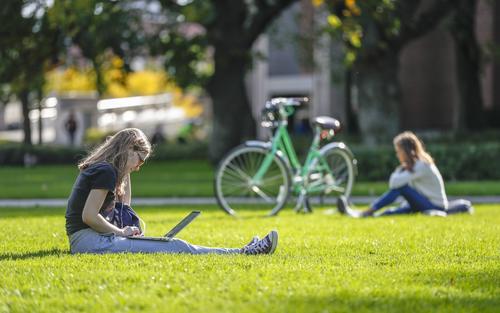
What can you do about climate change?
Climate science is important. So is the need to make it actionable to communities at large, which is the driving force behind the U of M’s Climate Adaptation Partnership, led by Heidi Roop, assistant professor of climate science. Roop’s new book, The Climate Action Handbook: A Visual Guide to 100 Climate Solutions for Everyone, offers ideas for how we can all help to mitigate climate change.
See how the U of M is creating a sustainable campus by
